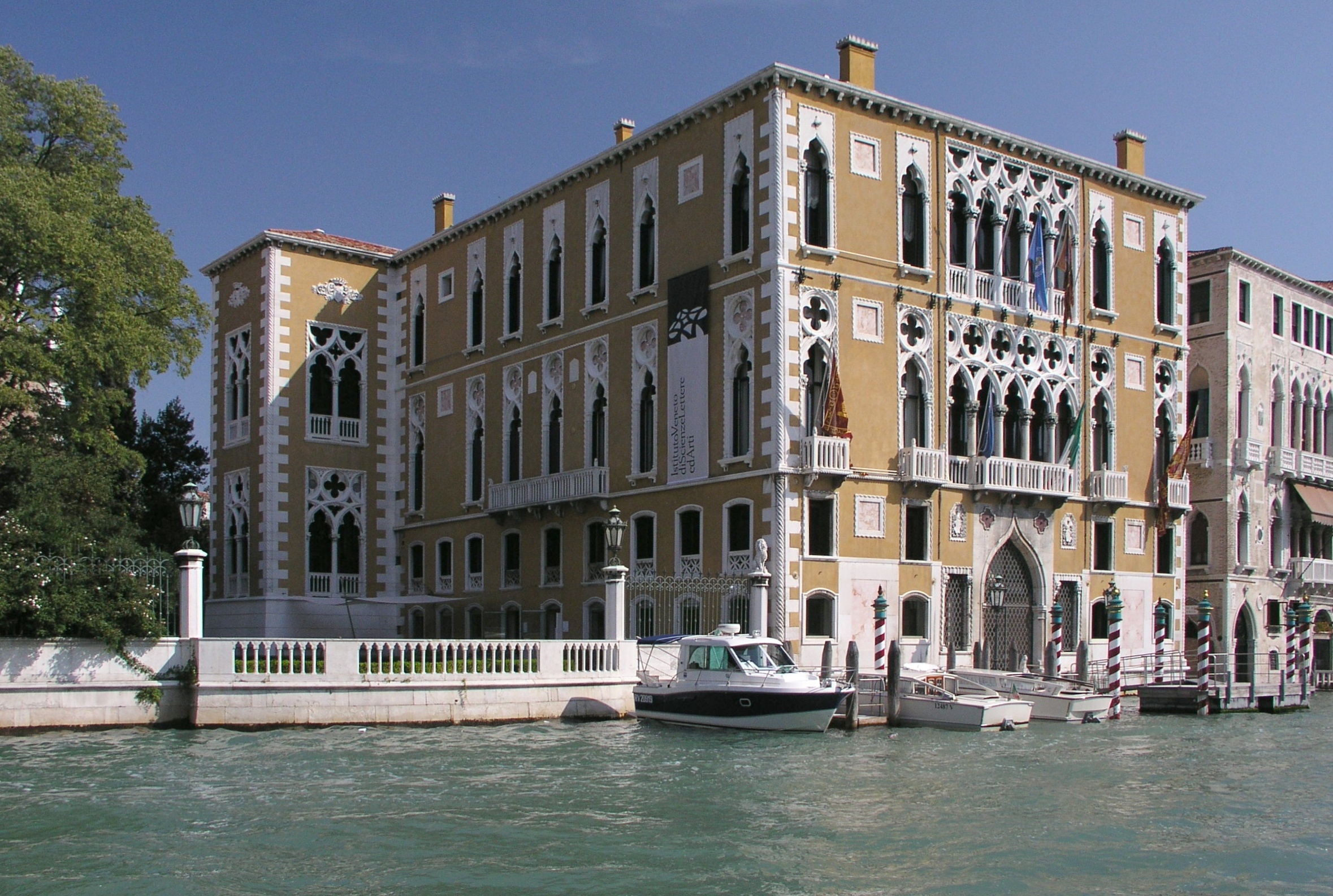
1. The first site I would like to mention is the NEUTEL conference blog. This site is inactive most of the time, but it becomes very active during the month of the conference, which is a biennial event. Neutrino Telescopes takes place in the month of March in odd years, in the very beautiful venue of Palazzo Franchetti (right), an old palace facing the Grand Canal in Venice. The conference, which has reached the 17th edition, attracts to Venice the most important scientists in the field for a week of focus on this fascinating topic. Since 2011 I organize the blog for the event. There, with the help of students and volunteers from the University of Padova and INFN, we attempt to give a summary of ALL the presentations that take place.
In recent years the coverage has been extended to the posters, as poster submitters are required to also provide a summary of the work, to be posted on the blog. If you visit the site, you will find out that it is a gold mine of good information on experimental and theoretical developments in neutrino and astroparticle physics, but also geophysics with neutrinos and satellite topics. And of course, since this is an odd year and March is approaching, you should expect the site to take off in the next few weeks, with a posting rate that during the conference will be more similar to a twitter account. Please come and visit us there, and leave your comments in the thread!
2. The second site I would like to draw your attention to is the AMVA4NewPhysics blog and web site. AMVA4NewPhysics is a ITN (innovative training network) financed by the Horizon2020 programme of the Research Executive Agency of the European Union. I am its scientific coordinator, and I direct a group of 19 institutions and about 50 researchers in experimental and theoretical physics, as well as some experts of machine learning from industries, to fulfil the program of the network. Among the nodes are CERN, INFN, Oxford University, Université Blaise Pascal, and others; and non-academic partners such as YANDEX, MathWorks, B12, SDG.
The program we have is to exploit cutting-edge Multi-Variate Analysis tools - what has become better known as machine learning tools - to improve our understanding of fundamental physics. AMVA4NewPhysics participants belong to ATLAS, CMS, or theoretical centres (at the Université Catholique de Louvain and at Technische Universitat Munchen), and also statistical academias (EPFL, University of Padova). The most direct goal we have is to train 10 very bright young guys and gals (six male and four female, I am proud to say - we strive for gender neutrality!) to do their Ph.D. and pick up a number of skills that will be important to them, whatever their post-Ph.D. occupation.
Since outreach and public engagement are a very important topic for the European Union, as you may well imagine it was a promise of our proposal to put together a well-read blog, where our students - but also our researchers - would discuss their advancements as well as their personal activities and thoughts. So the web site is there, we post three or four articles a week, and you are very welcome to subscribe to it or visit it when you have a chance! The three most recent posts you may find there are:
- Tagging and Probing, an article by Alexander Held (a Ph.D. student of British Columbia who works in ATLAS at Higgs searches). The post is about understanding the efficiency of muon reconstruction
- Outreach event in Venice, a piece I wrote about high-school lectures we are giving
- Language and communication, a post by Giles Strong (a Ph.D. student in LIP who works in the CMS experiment) on his experience at a "soft skills" workshop that the network offered in Padova, as part of its program.
---
Tommaso Dorigo is an experimental particle physicist, who works for the INFN at the University of Padova, and collaborates with the CMS experiment at the CERN LHC. He coordinates the European network AMVA4NewPhysics as well as research in accelerator-based physics for INFN-Padova, and is an editor of the journal Reviews in Physics. In 2016 he published the book "Anomaly! Collider physics and the quest for new phenomena at Fermilab". You can purchase a copy of the book here.




Comments